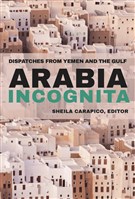While the Gulf Cooperation Council , the United States, the European Union, and the Yemeni president quibbled over who would sign a vague transfer-of-power concord President Ali Abdallah Salih nixed, the youth coalition of pro-democracy demonstrators have put together thirteen specific points for the coming transition (and had them translated into clear English). Their proposals are certainly not inspired by al-Qa’ida or the Muslim Brotherhood, as the discredited Salih regime asserts, nor any other outside agencies. Neither, however, are they the impractical aspirations of immature idealists.
Rather, the points in the petition address specific issues in Yemeni politics and concrete steps to alleviate the worst problems. It is clear that the drafters of these resolutions have consulted with their elders in the Joint Meeting Parties and the National Dialogue as well as constitutional documents from earlier Yemeni pro-reform movements including the 1994 Document of Pledge and Accord that garnered wide support among different social forces. The points in the document below are appropriate, well-considered, and widely supported. They should not be dismissed as impractical to implement or extra-constitutional.
The drafters of this plea show faith in the prospects for a group of nationally known, respected, mostly elder civilian political figures to lead the transition from the Salih dictatorship to an elected government. They emphasize the youth’s concern for peace and social justice. Clearly this document was released now in hopes of forging a path way from the current trajectory towards civil war.
The Demands of the Youth are:
1) Remove the current regime peacefully and remove all its figures and all members of the President`s family and his relatives from all leadership posts in the military and civil institutions.
2) Forming a Transitional Pre...sidential Council that constitutes of 5 civil members that are widely known for their competency, integrity and experience. These members have to be approved by the revolution youth leaders and the national powers. Individuals that represent the previous regime should be excluded from the selection. The Transitional Presidential Board will have the responsibility to issue all decision and decrees that will ensure attaining the demands of the revolution. After serving in the Transitional Presidential Board, members will not have the right to run for President or Prime Minister posts until one electoral cycle is completed.
3) After overthrowing the regime the Board has to declare a six month transitional period. This period starts with a constitutional decree announcing the termination of the current constitution and dissolving the Parliament, the Shura Council and the Local Councils.
4) The Transitional Presidential Board will appoint a widely accepted national figure who will form a Transitional Cabinet of qualified technocrats within one month.
5) A Transitional National Board to be formed and include representatives of the youth and all political and national powers. The Transitional National Board will provide: a) A solution for the Southern issue that yields a fair and satisfactory response b) A solution for the Sa`ada Case issue that resolves the preceding effects. c) Monitoring the performance of the Transitional Presidential Board and the Transitional Cabinet. d) Forming a new Supreme Council for Elections which will be responsible for correcting the voter records and preparing for free and fair elections during the transitional period. e) Selecting a Drafting Committee of reliable legal advisors to propose a new constitution for a civil, democratic and modern state that has: a republican parliamentary system based on proportional list-based electoral system, and a system of social justice and equal citizenship. The new constitution has to be completed within three months from its initiation, and the then put for national referendum.
6) Restructuring the higher judicial council to ensure the full separation and impartiality of the judicial authority.
7) Dissolving the Ministry of Information and forming an independent higher authority that will ensure freedom of expression and diversification of media and communication outlets.
8) Dissolving the Ministry of Human Rights and creating an independent higher council for human rights.
9) Legally pursue and prosecute the corrupt officials and retrieve public property and money. 10) Immediate release of all political detainees and the missing persons and dissolving extraordinary courts and private prisons.
11) Legal persecution of all individuals that caused, assisted and incited the killing and injury of those who participated in the peaceful demonstrations. Deliver appropriate compensations to the families of the deceased and honor them duly.
12) Dissolving the Political Security Forces and National Security Forces, and forming a new dedicated national security agency under the umbrella of the Ministry of Interior. The new national security agency will be responsible for observing Yemen’s external threats.
13) Merging the Republican Guards with the Military Forces, and dissolving the National Defense Council to ensure full impartiality of the Army and Security Forces.
![[Protesters in Yemen. Image from unknown archive.]](https://kms.jadaliyya.com/Images/357x383xo/yemenyouthyemenyouthdemands.jpg)

.jpg)















